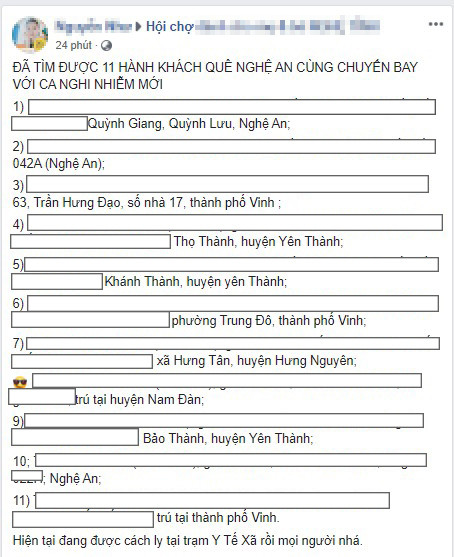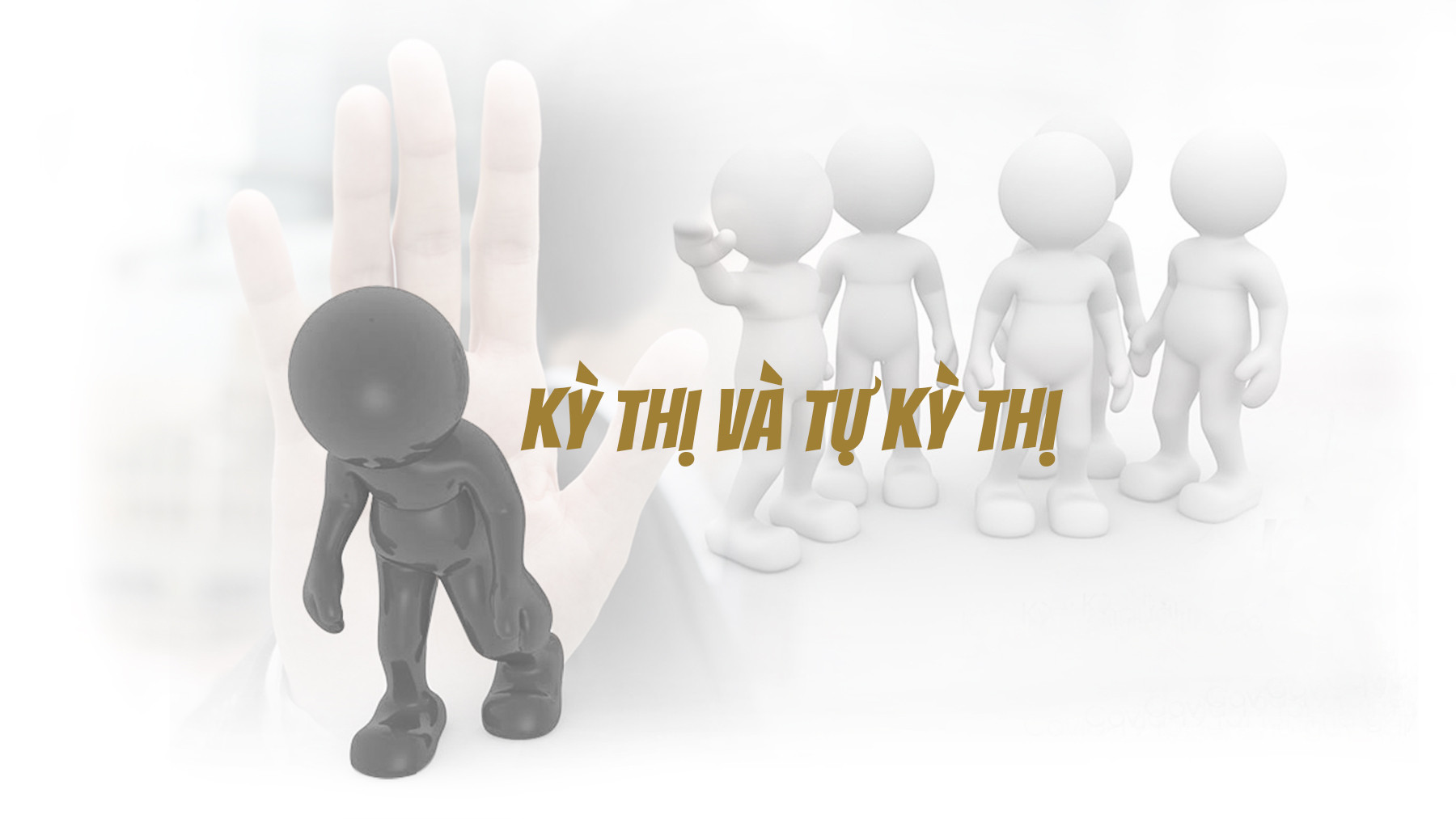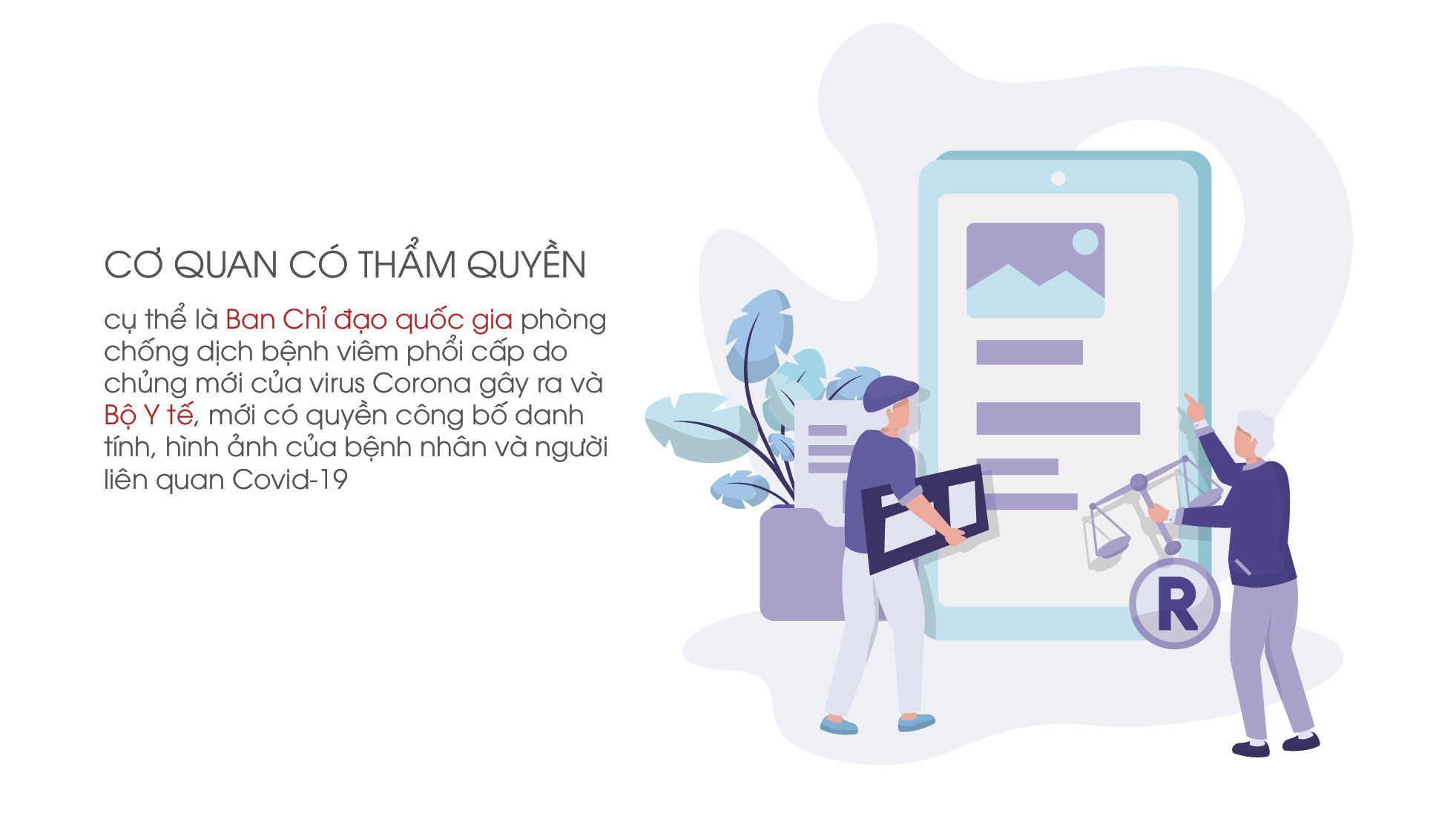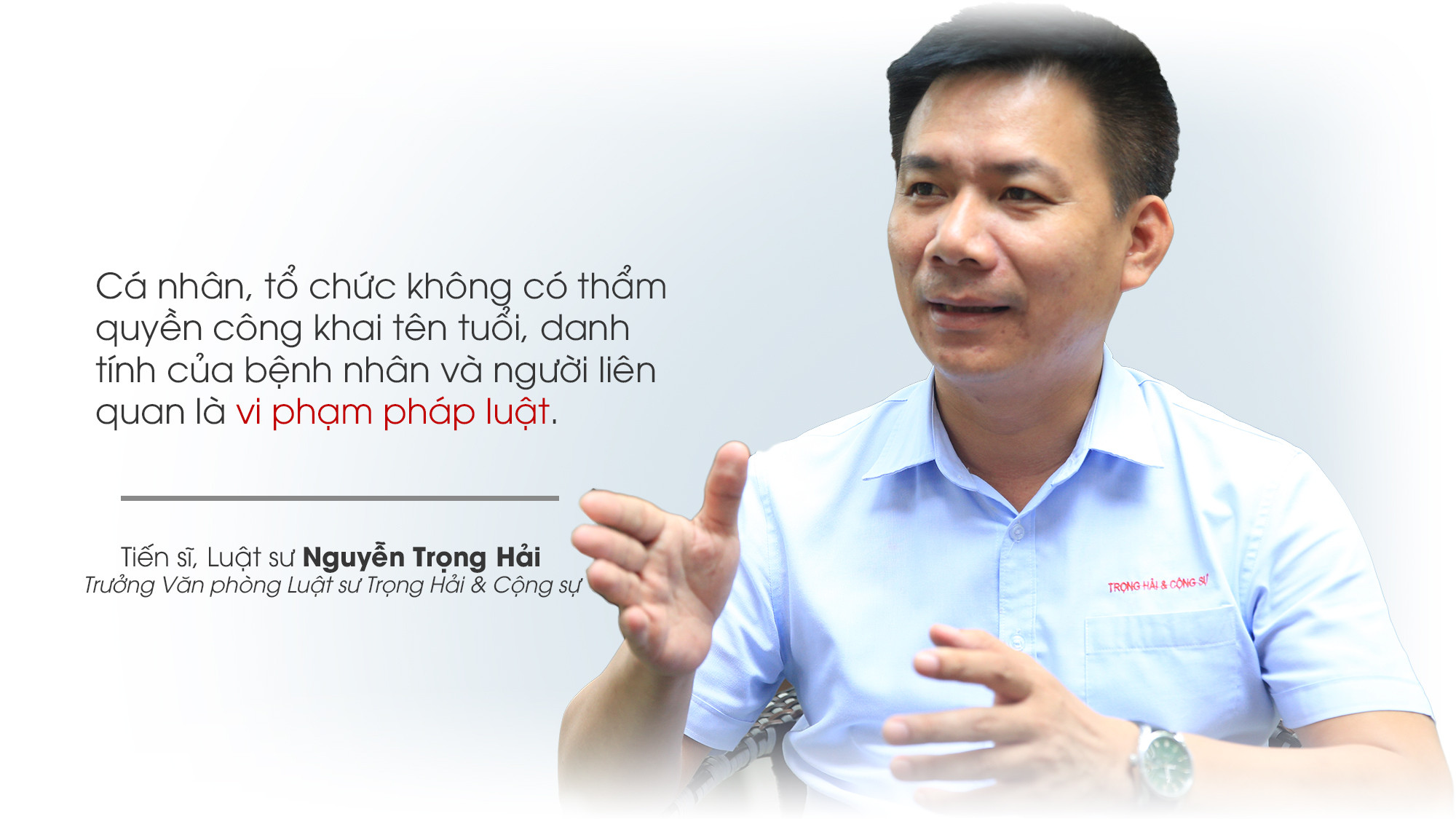Should the identities of patients and people related to the Covid-19 epidemic be made public?
(Baonghean.vn) - Should the identities of patients and people related to the Covid-19 epidemic be made public? This is the question of many people today in the face of the increasingly complicated epidemic situation.
To better understand this issue, Nghe An Newspaper reporter discussed with Dr., Lawyer Nguyen Trong Hai - Head of Trong Hai & Associates Law Office, specifically as follows:
Privacy - one of the most important human rights
The right to privacy, personal secrets, family secrets (privacy secrets) is one of the most basic and important civil rights recognized by the 2013 Constitution.
Specifically: Clause 1, Article 21 of the 2013 Constitution of Vietnam clearly states: “Everyone has the right to inviolability of private life, personal secrets and family secrets; has the right to protect his/her honor and reputation. Information about private life, personal secrets and family secrets is guaranteed by law.”
 |
| The identities of 11 people in Nghe An related to Patient 51 were posted on social media by many individuals. Photo: Thanh Cuong |
The right to privacy of citizens is always protected by law. The 2015 Civil Code specifically stipulates the right to privacy in Article 38 as follows: "The right to privacy of individuals is respected and protected by law." Those who seriously disclose the privacy of others may also be prosecuted. The 2015 Penal Code stipulates "Crime of violating the confidentiality or safety of letters, telephones, and telegrams of others" in Article 159.
Article 12 of the Criminal Procedure Code stipulates: “Ensure the inviolability of citizens’ residence, safety and confidentiality of correspondence, telephone and telegraph. No one is allowed to violate citizens’ residence, safety and confidentiality of correspondence, telephone and telegraph. The search of residence, search, detention and seizure of correspondence and telegraph when conducting proceedings must comply with the provisions of this Code.”
In order to protect privacy in electronic transactions, the Law on Electronic Transactions stipulates that agencies, organizations and individuals are not allowed to use, provide or disclose information about privacy or information of other agencies, organizations and individuals that they have access to or control in electronic transactions without their consent, unless otherwise provided by law.
Patients have the right to keep personal information confidential.
Regarding personal health confidentiality, the law clearly stipulates the obligations and responsibilities of patients such as truthful declaration, compliance with the instructions and guidance of doctors, medical staff and the rules and regulations of medical examination and treatment facilities... If anyone violates, they will be subject to sanctions according to the provisions of the law. And conversely, patients also have legal rights to be protected and respected, specifically personal rights.
 |
| When made public, patients and people related to the Covid-19 epidemic are easily discriminated against and rejected. Photo: Thanh Cuong |
Clause 1, Article 25 of the Law on Protection of People's Health stipulates the responsibility of physicians to keep confidential information related to illness or private life that they know about the patient.
Clause 3, Article 33 of the Law on Prevention and Control of Infectious Diseases stipulates that one of the responsibilities of doctors and medical staff in preventing the spread of infectious diseases at medical examination and treatment facilities is to keep confidential information related to patients. Clause 5, Article 8 of the Law on Prevention and Control of Infectious Diseases stipulates that discrimination and posting of negative images and information about people with infectious diseases is prohibited.
Article 8 of the Law on Medical Examination and Treatment clearly stipulates that patients are entitled to keep confidential information about their health status and private life recorded in their medical records; it is only allowed to be disclosed when the patient agrees or to share information and experience to improve the quality of diagnosis, care and treatment of patients among practitioners in the group directly treating the patient or in other cases prescribed by law. Article 9 of the Law on Medical Examination and Treatment stipulates that patients are entitled to respect their honor and have their health protected during medical examination and treatment; they are not discriminated against or discriminated against...
 |
| Only competent authorities have the right to publish identities. Photo: Thanh Cuong |
Lawyer Nguyen Trong Hai stated: Therefore, for Covid-19 patients, if they violate the law, they will be handled according to the provisions of the law. But they themselves are also patients, so their privacy needs to be respected, and discrimination, stigmatization, and violations of their personal rights should be avoided.
How is the identity of Covid-19 patients and people related to the epidemic made public?
Lawyer Nguyen Trong Hai emphasized: This disclosure can only be carried out by competent authorities. The basis for implementation is that competent authorities will base on national interests, ethnicity, and public health to decide whether to disclose or not. Sacrificing personal interests to ensure public health, competent authorities have the right to disclose identities.
The legal basis for public disclosure is stipulated in Clause 2, Article 14, Chapter II of the 2013 Constitution of Vietnam. Clause 2, Article 14 clearly states that “Human rights and citizens' rights may only be restricted in accordance with the provisions of law in necessary cases for reasons of national defense, national security, social order and safety, social morality, and community health”.
With such regulations, it is clear that only competent authorities (specifically the National Steering Committee for Prevention and Control of Acute Pneumonia caused by the new strain of Corona virus and the Ministry of Health) have the right to publish the identity and images of patients and people related to the Covid-19 epidemic.
 |
| Individuals and other organizations that provide the full names, identities, and addresses of patients and people related to the Covid-19 epidemic are violating the law. Photo: Thanh Cuong |
The announcement of the identities of patients and people related to the Covid-19 epidemic by competent authorities in Vietnam has long ensured the rights of citizens when the identities are abbreviated and denoted by numbers such as BN17, BN21... Thus, it is a violation of the law for individuals and organizations to provide the full names, identities, and addresses of patients and people related to the Covid-19 epidemic. Patients and people related to the Covid-19 epidemic can file a lawsuit according to current regulations.
Currently, Vietnam is encouraging citizens to declare the Covid-19 epidemic. This declaration is aimed at helping competent authorities clearly understand information about people suspected of being infected with Covid-19, thereby taking timely measures. Declaration is completely different from spreading information, revealing the identities of patients and people related to the Covid-19 epidemic, causing public panic and disrupting social order and safety.

